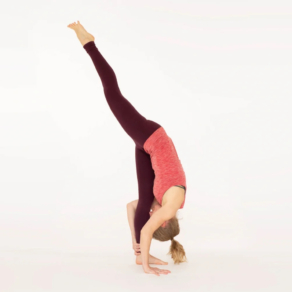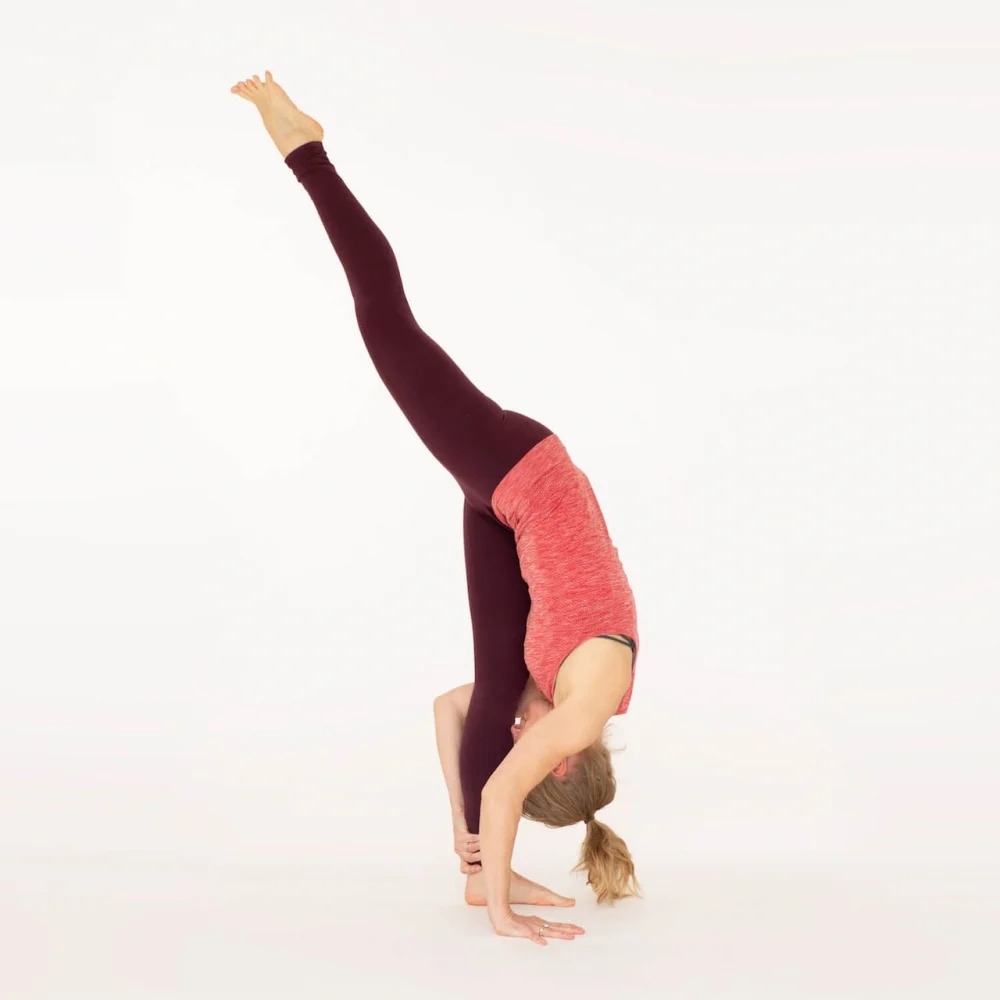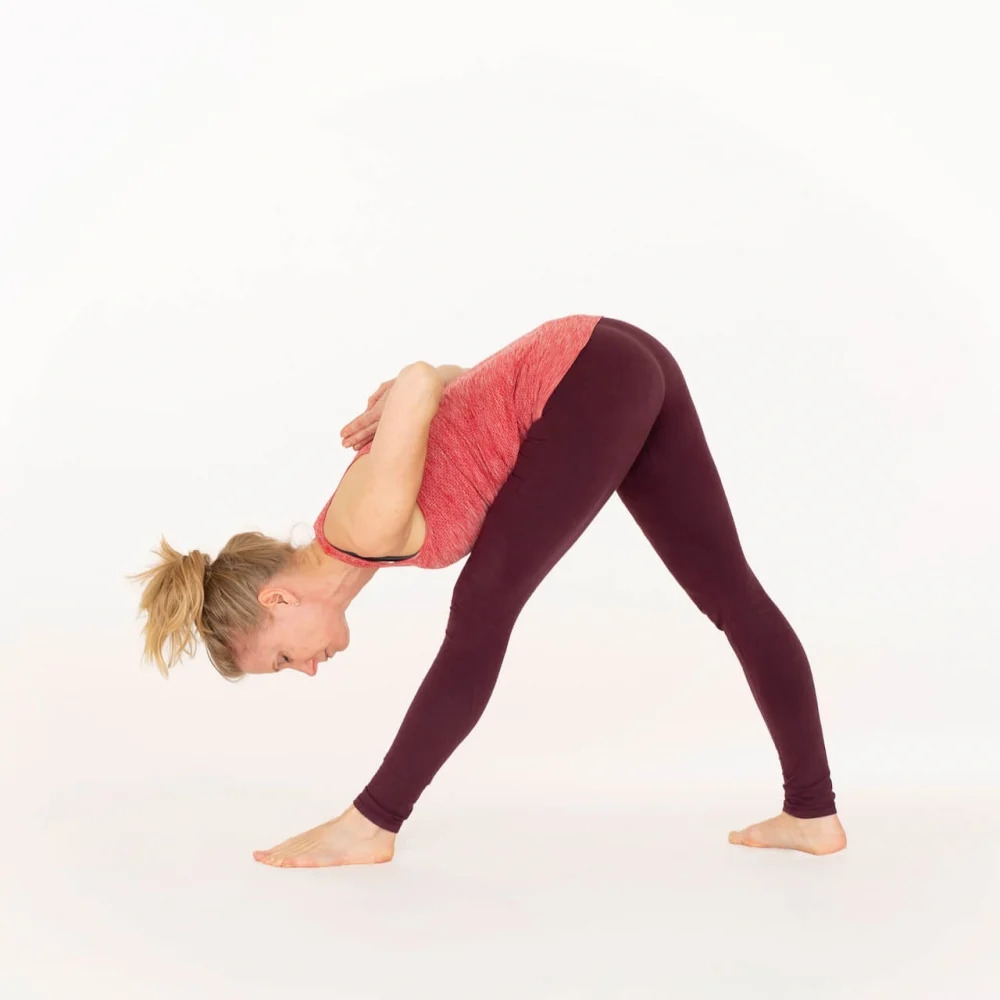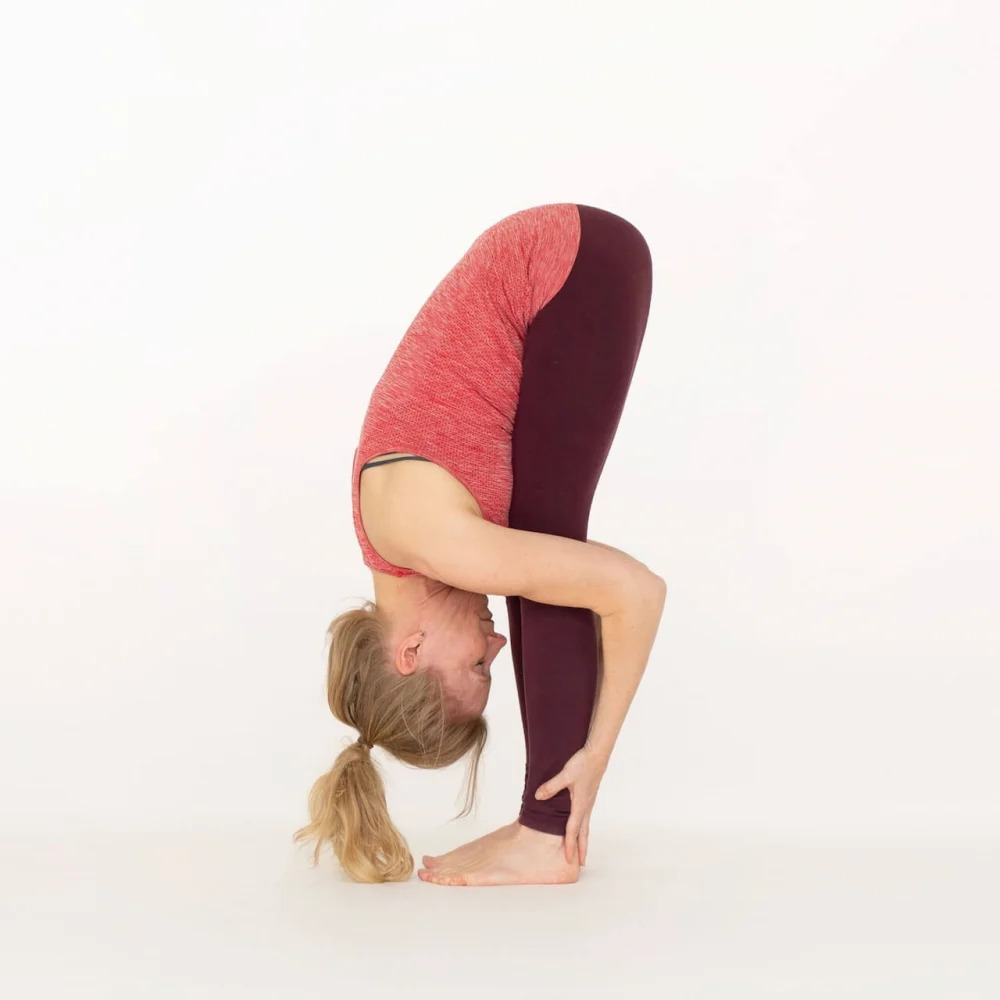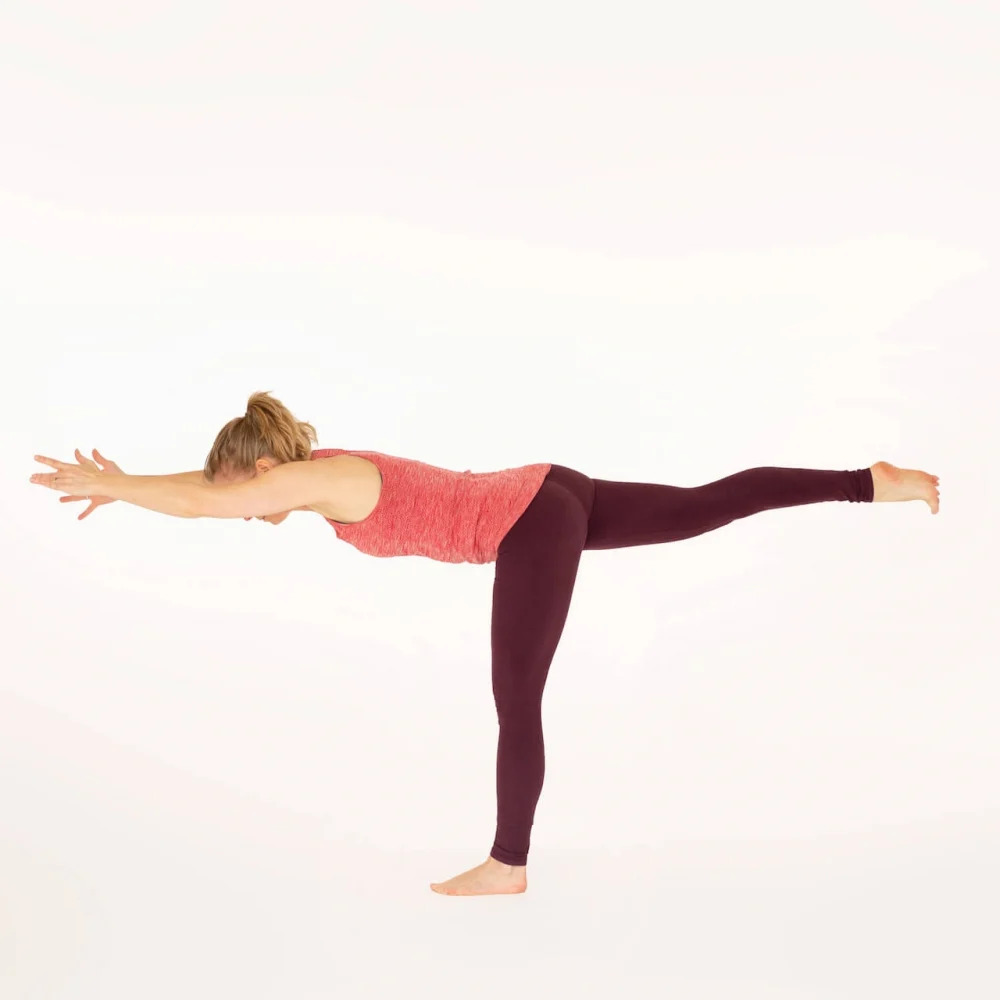Step by step
- Starting in Uttanasana / Standing Forward Bend.
- Lengthen your spine and come onto your fingertips as you inhale.
- Bring the weight into your left foot.
- On your next inhalation, lift your right leg up behind you parallel with the floor as in Warrior 3.
- Internally rotate the right leg by rolling the right inner thigh up.
- As you exhale fold over your standing leg bringing the hands back to either side of your foot, while lifting the right leg higher.
- Keep the standing leg engaged by lifting the knee cap and front of thigh.
- Press through the ball of the raised foot.
- Come out of the pose by lowering the leg back to Uttanasana.
- Stay here for a few breaths before repeating on the other side.
Beginners’ tips
- Start by working on Warrior III pose. From there come into Standing Splits.
- Work on keeping the hips level rather than lifting the leg as high as you can. Press the top of your standing leg back without locking the knee.
- Pressing out through the ball of the lifted leg will help to keep it lifted.
Benefits
- Tones and strengthens the legs, feet and ankles.
- Improves balance and focus.
- Stretches the hamstrings, calves and quads.
- It is a mild inversion increasing blood flow to the brain and calming the nervous system.
Watch out for
- Avoid this pose if you have ankle or knee injuries or problems with your blood pressure that prevent you doing inversions.
- Avoid locking the standing knee.
- Focus on stretching the front of the lifted thigh – keeping the hips square and level – rather than opening up the hip to get the leg higher.
Variations
- If you are feeling steady in the pose try taking hold of the ankle with both hands.
- Try Standing Splits at the wall, as Sandra demonstrates it in her Monkey up the wall class.
- Try Standing Splits as part of a balance sequence moving from Uttitha Hasta Padangustasana to Warrior III to Standing Splits and then from here back to Uttitha Hasta Padangustasana with your hands on your hips.

